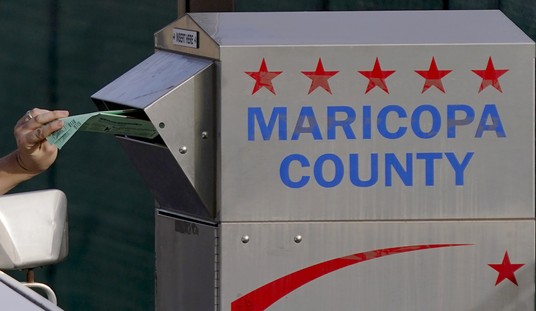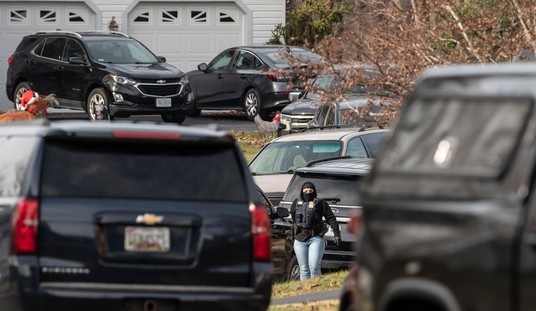(Earlier today, Bryan posted at the Tatler, “So the US Marines Raised the American Flag on Iwo Jima During the ‘European Civil War?'” Here are a few quick thoughts to add to his, originally posted at Ed Driscoll.com.)
“Don’t Strand the Holocaust in History,” Jonathan S. Tobin implores at Commentary:
This evening, Jews in Israel and around the world will mark Yom HaShoah, the day of remembrance of the Holocaust. For most, it will be a moment of mourning as well as an occasion to ponder the lessons of history and to ask whether humanity has learned anything in the 67 years since the end of the Second World War. But for some on the left, the Holocaust has become a political liability that must be drained of all relevance to the contemporary world.
Of course, Europe itself is one giant Orwellian Memory Hole. Or as this headline at the London Daily Mail notes, “WWII referred to as the European Civil War: The EU cannot be serious?”
Yes, it’s a rhetorical question:
Today we learn that the European Union (our real ruler) is opening a £44m museum that will be a House of European History. This vanity project in and of itself is an offensive waste of money as governments and peoples tighten belts across Europe.
But what I found most offensive of all is that World War II is to be described as “the European Civil War”.
That’s right: a European Civil War that saws millions fight and die in theatres around the world in places as diverse as Tobruk, Pearl Harbour and the Burma Railway.
What greater calculated insult can there be to those from India, Australia, New Zealand, the United States and across the world who fought and died to defend freedom from Nazi and Japanese tyranny?
Also, the phrase (which has its own Wikipedia page; who knows how much Oceania-style airbrushing it’s had?) is itself a nice piece of retconned Manifest Destiny. Or as one of the commenters at the Tatler quips:
Orwellian doublespeak taken to new heights!
Last I checked, a ‘civil war’ is defined as a conflict between people of the same nation and nationality. Even the European Theater of WWII was between separate and distinct nations.
Obviously this nonsensical description is meant to reinforce ‘European unity.’ You see, Europeans were ‘always the same people,’ but just didn’t know it!
In the 1990s, the Smithsonian went out of its way to warp Hiroshima through the PC Play-Doh Fun Factory; we shouldn’t be too surprised when the Europeans, who invented PC, really go to town with the concept.
Furious, yes. But not surprised.
Update: Much more from Richard Fernandez at the Belmont Club:
The whole problem of explaining the present is so nettlesome that the European Union’s “House of European History” museum decided to omit the mention of World War 2 altogether by the simple expedient of declaring 1946 the Year Zero for European history. “It celebrates the creation of the EU with barely a nod to the crisis raging all around. France’s recent history is marked by a picture of the Tour de France, and Germany’s by the famous Berlin address by Barack Obama in 2008.”
Farcically, it’s been decided to omit any exhibit on which agreement cannot be reached. And because of their differing views about World War II, the museum will begin with an EU ‘year zero’ of 1946.
But of the unpleasantness of 1939-1945 it will only say that there was an event called the “European Civil War”, which presumably was fixed by the European Union, without the slightest input from things called the United States, the former Soviet Union, China and the Empire of Japan.
Yet these absurd naming conventions are only further signs that the Narrative is now developing yawning gaps. For the current world crisis, like almost every other crisis is caused as much by what went right in the last 70 years as what went wrong. And the problem with the Narrative is that what should have gone wrong went right and what ought to have gone right went wrong.
Read the whole thing. But first, did you catch the “Year Zero” reference? Europe has already had its share of “Starting From Zero” moments in the last century. And they worked out just swell for all concerned:
Related: “Celebrate Diversity . . . Or Not,” Michael Walsh adds at the Corner:
From its formation, the goal of European integration (chiefly a French-German notion) was to beat the nationalism out of the former Great Powers, so as to avoid a repeat of the first and second World Wars. But the EU assumed a static-state entity, one with free movement between borders but not across borders from an historically inimical part of the world. The huge flood of Muslim immigrants from Italy to Scandinavia changed the equation. The only question now is how the Europeans react to it, once they realize that “multikulti” is not peaceful coexistence, but a cultural suicide pact.
Short answer? Badly. About as badly as the last 100 years of Europe’s history (or in its museums and universities, the lack thereof) has gone.










Join the conversation as a VIP Member